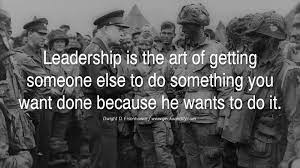As a young man looking to join the military, I, as many do, sought out advice from friends and relatives who served. I did my best to consult with someone from each branch. One recurring piece of guidance I received was to find a specialty that would translate into civilian life. As most 21-year-old kids do, I ignored that advice and decided to become a Small Arms Repairer in the National Guard. Looking back on nearly 10 years of service (and counting) I began to reflect on the lessons I learned as a young man. Here are 10 things my time in the military taught me.
1. Be flexible.
Life happens, s–t hits the fan, and the general human tendency is not to help their fellow man. We must allow for a certain amount of deviation in our plans. Whether it’s a company commander who doesn’t share the same priorities as you do or the clerk at the gas station who clearly doesn’t understand you are running five minutes late. We must allow for flexibility in our plans and do our best to plan for the unknown.
2. Have compassion for your fellow man.
Coming from a “perform perfectly or your buddies could get killed” background, this lesson is counterintuitive to the military mindset. We as military members are often told to embrace the suck, to drive on, and to deal with our personal problems on our own time. As a leader of young men and women, I had to learn to show a certain level of understanding to the personal issues of my soldiers. It has been my job to develop these young men and women both professionally and personally. Demonstrating the ability to show compassion and empathy shows that you are not some preprogrammed robot with all the answers. We are all humans. We are all fighting our own battles.
Advertisement — Continue Reading Below
3. Be tough on those you care about.
Set up your no s–t rules and stick to them. There is a phrase that was burned into my memory from an old school (and slightly crusty) Non-Commissioned Officer (NCO). He used to say, “firm, fair, and consistent.” Set your rules, enforce then equally among all, and, most importantly, be consistent in your punishment (or praise). I always thought he was just a hard headed old man who was set in his ways. Then I became a father. Oh boy, nothing can prepare you for that day. As I pondered allowing my son to take a bath in the dog dish because my efforts in thwarting his plan have been futile until this point, I remembered the words that genius (and, looking back, not so crusty) old man told me. Firm. Fair. Consistent.
4. Leadership is learned.
We have all seen it. The ‘roided out E6 who got promoted based on his physical fitness test scores but can barely read the warning labels on the tub of pre-workout he guzzles. He can’t participate in a conversation without referencing making soldiers do push-ups or “back in my day”. We all know this NCO and we all hated this NCO. What these personality types lack is not the ability to lead, it’s proper mentorship. We must seek out the positive traits of those around us that we look up to and learn to emulate them in our every-day life. Self-reflection is not an instinctual trait humans possess, it is one of the most important we must learn.
5. Seek results, not excuses.
This is one of my biggest pet-peeves. It is far too common for me to ask why a task wasn’t completed and be confronted with all the reasons why it was impossible. I think of myself as a fair and understanding man. I am slow to anger and realize that life happens sometimes, but what I have learned during my time in service is that sometimes we just have to roll with the punches and complete the mission. Not everything in our lives goes as planned (see rule #1), but we still need to achieve positive results in the face of major difficulties. We must drive on. I think Nike said it the best. “Just do it.”
Advertisement — Continue Reading Below
6. Take responsibility for your actions.
I personally believe that one of the hardest skills any man or woman has to learn is to take responsibility. As children we are protected from harm. Our parents who love and care about us make sure nothing bad happens in our lives, to the best of their ability. Then one day we become teenagers. As we grow into our teens, we are afforded more freedom. We drive ourselves to school, to work, to a friend’s house. We are responsible for our own grades and making it to work on time. There is no longer that guiding hand always pushing us towards the light, but its still there to keep us from the dark. Then we turn 18, move out, and have bills to pay. We are pushed into a cruel dog-eat-dog world and were barely even adults.
The easy solution is to start to place blame. I got fired because my boss didn’t like me. My girlfriend left me because she’s psycho. These excuses are the easy button, the painless way out. The hard route is to accept that our problems are a direct result of our previous actions and the actions of others combined, but we are the common denominator. The day we finally figure this out, we truly ascend into adulthood. We can finally begin to grow.
7. Action beats inaction.
Far too many times I see young leaders afraid to make a decision. Maybe they have never had to be in charge before, never looked around a room to see all eyes staring back, anxious to see your next move. It can be overwhelming the first time you realize you’re someone people look up to. Natural instinct (and muscle memory) tells you to pick up the phone, send a text to your leader, and wait for further instruction.
Advertisement — Continue Reading Below
I am here to tell you that, as a leader of leaders, we want you to make mistakes. It is okay to be wrong, it is okay to make a bad call. This is how we learn. At the end of the day, if you considered the health of those around you and nobody got hurt, we can probably still sort out the mess. At least you did something, at least you acted. That in itself is the right decision. Make mistakes where they can be fixed so you make fewer where they cannot.
8. Take the time to develop those around you.
Flash back to that ‘roided out E6. Now imagine being his co-worker instead his subordinate. Frustrating, right. Always having to cover down on their tasks, always picking up the broken pieces to still make mission. Saying to yourself, “I wish somebody took the time to train you.” Well guess what? If you are not training those around you then you are part of the problem.
We tend to get so wrapped up in getting to a job well done that we forget to take a minute to point out training opportunities. Take that extra second, minute, hour. Train those around you because one day they may be your boss. That is a lesson we tend to learn the hard way.
Advertisement — Continue Reading Below
9. Live the core values you expect from those around you.
This is one that infuriates me to my core; I see leaders scolding their subordinates for infractions they themselves habitually commit. Sadly, this seems to have become commonplace. I equate this to having a complete disrespect for the men and women working for you. Nothing kills morale faster. Nothing hurts cohesion more. Talk is cheap, live the values you preach. Lead by example. This is how you gain the respect of those around you.
And finally,
10. Respect is earned.
I am going to tell you all a little secret. If you have to tell someone that they have to respect you, they don’t. There is a certain amount of respect that rank or title holds, but having men follow you to their certain demise is true respect. It is trust, it is loyalty, it is knowing that the person out front did the risk-reward ratio and what happens in the next few minutes is for the greater good. This is no easy task, earning the respect of those around you is hard. It requires making the tough choices, it requires doing things the hard way because it is what’s morally right. True respect is something you have to fight yourself and all your lazy tendencies for. We do it because it is hard. Respect is earned, not given.
Advertisement — Continue Reading Below















